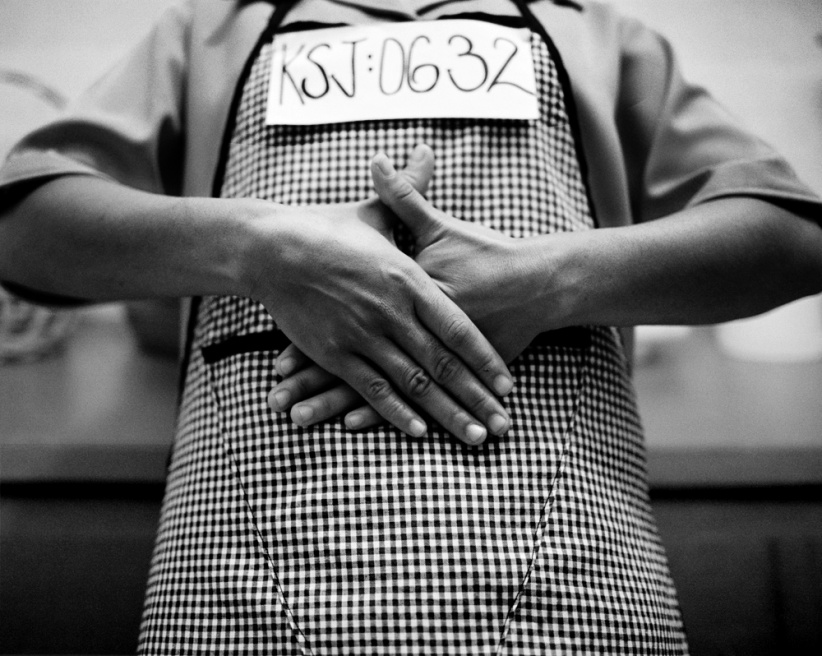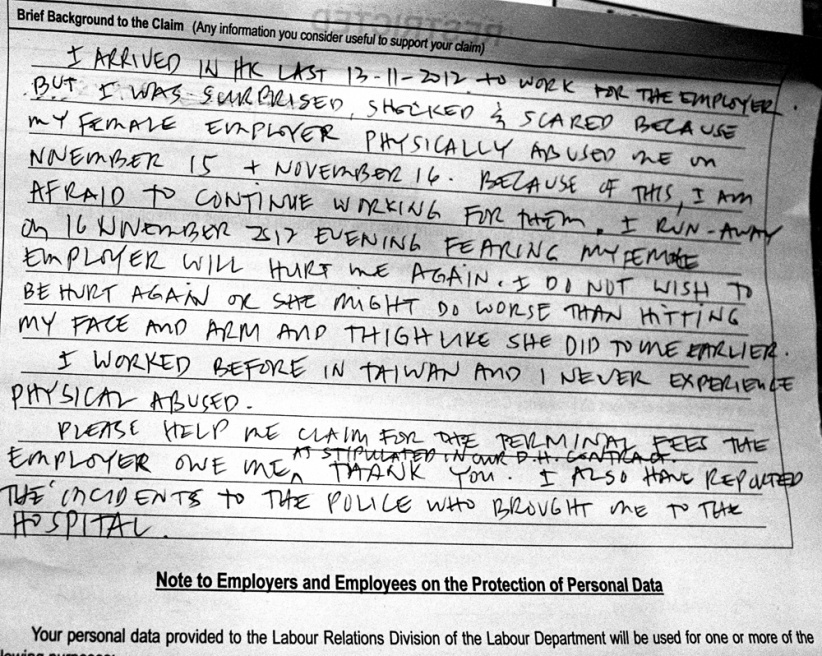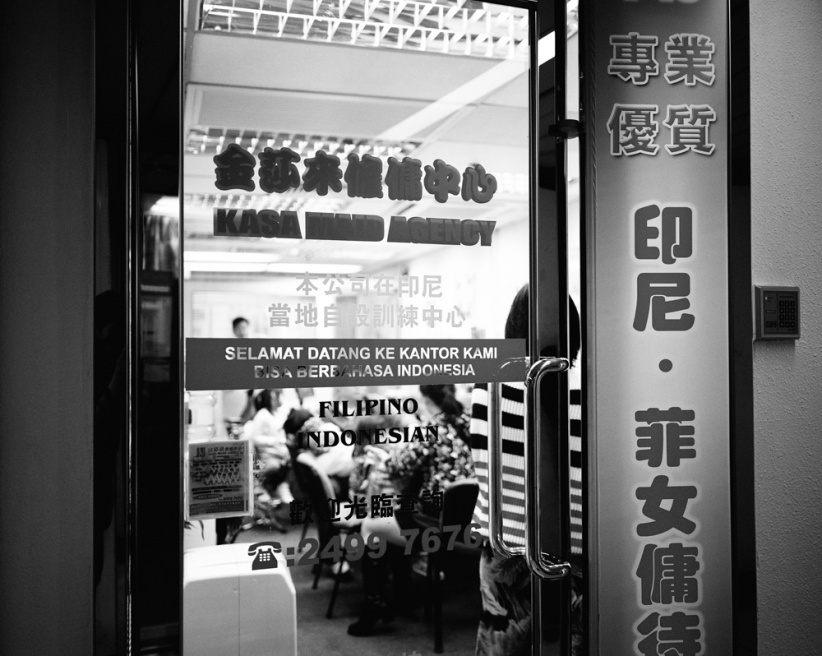“Dreamseekers”
Every month, thousands of Indonesian women are sent to Asia and Saudi-Arabia to work as domestic helpers.
It only took me a little research before I knew I had to tell the story of these women. From the dreams of young girls in their home villages, to their life as maids far from their country, I needed to document the whole journey.
After secondary school, these women are often mislead by sponsors who travel across the country selling dreams of adventures overseas, and fantastic monetary prospects. The girls often sign up hoping to find a way to help their families and replicate the success stories they keep hearing about. Local recruiters in Indonesia (called sponsors) have told me that they pay the families to get their permission to bring the girls to Training Camps. This is disguised as an encouragement bonus they call “pocket money”.
The girls are sent to carry out their mandatory training in one of the accredited Training Camps, where they are supposed to learn how to use household appliances, cook, do the laundry, and learn languages. Sadly, most courses are far from adequate leaving them unprepared for the high expectations of their future employers.
Thanks to Ringo Wong, in charge of an agency in Hong Kong, with whom I travelled, I was able to witness the sad machinery of training camps through my lens. What hurts the most is to understand that these camps are built solely to squeeze as much profit as possible out of each girl, with the participation of the Indonesian government.
They leave their homeland with high hopes and aspirations, but more often than not the reality at their destination turns their dreams into nightmares...
Life doesn’t get much better once they are sent off. In some cases, there have been reports and testimonies depicting horrible work environments, exploitation, and rough physical and physiological treatments.
Through my interviews, I keep getting the feeling that these girls are not prepared for this life. They don’t have the tools to know how to react if their employer gets too close, or intrusive. Most girls I have talked to barely know when their rights are violated.
Ironically, the younger inexperienced girls are called "New Borns" by agencies. New Borns get the worst jobs in the worst destinations since they are easier to influence.
Most of these young helpers come from poor villages and belong to the poorest social class in Indonesia. Since they aren’t educated enough to know their rights as workers, it’s easy for sponsors and agencies to take advantage of them.
The standard contract lasts two years in Hong Kong, giving them the possibility to come home to make babies before taking on the next job. They have no choice but to leave their children and husbands behind when they leave.
They may come back to their communities as heroes, but at what price?
I’m illustrating what I consider a modern version of slavery and human trafficking:
My project is on going. My research started in February 2012 and I’ve been documenting for a month and a half in Hong Kong and Indonesia.
I have two more months planned before finishing their story. I will be returning to Indonesia, and spending a few weeks in Malaysia where the standards of living are reputed to be the worst.
I plan on following a sponsor on his tour of Indonesian villages, portraying the families and living situations of future helpers, and illustrating the recruitment process.
The newly recruited helpers will make their bags with the little belonging they have, say good-bye to their families, and take off for a life changing plane ride.
I plan to document their return to Indonesia, and illustrate their experiences. Some manage to start small businesses thanks to their income, while others struggle for the rest of their lives.
Even though the project is not yet finished, my FOTOVISURA submission does depict a strong story regarding the training in Indonesia, the recruitment by agencies in Hong Kong, and the arrival of these girls on the Island.
----
For a better understanding of the story, please make sure to read the captions.

































